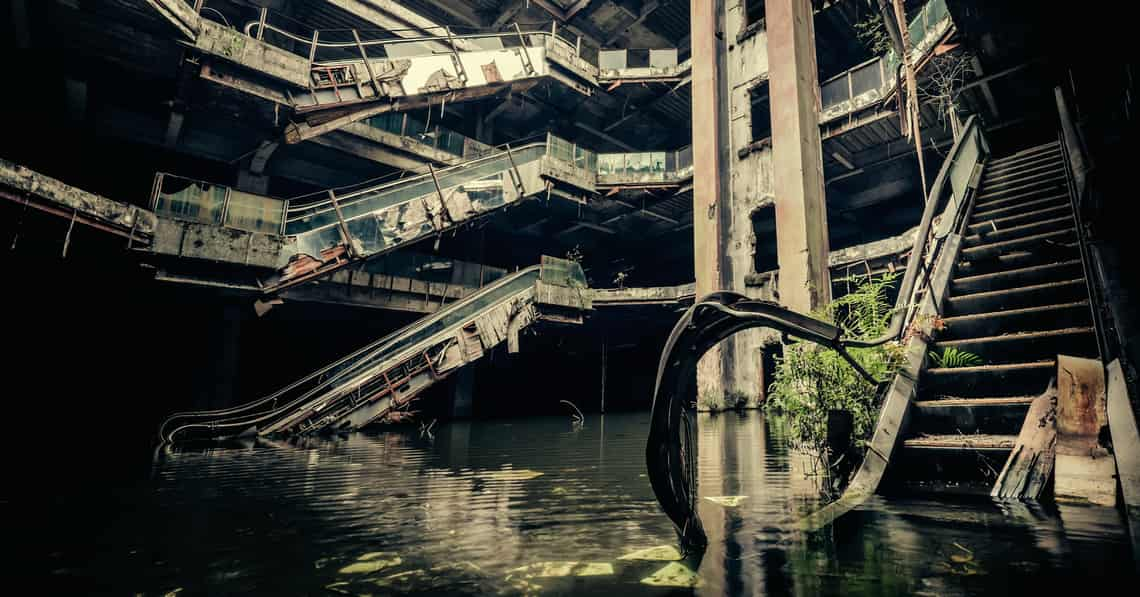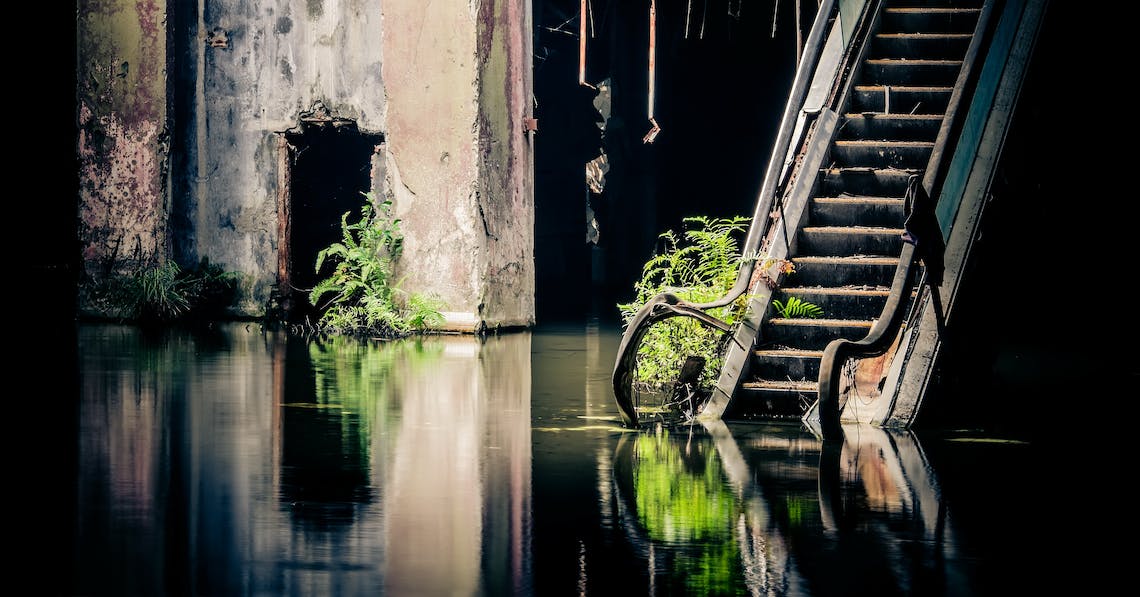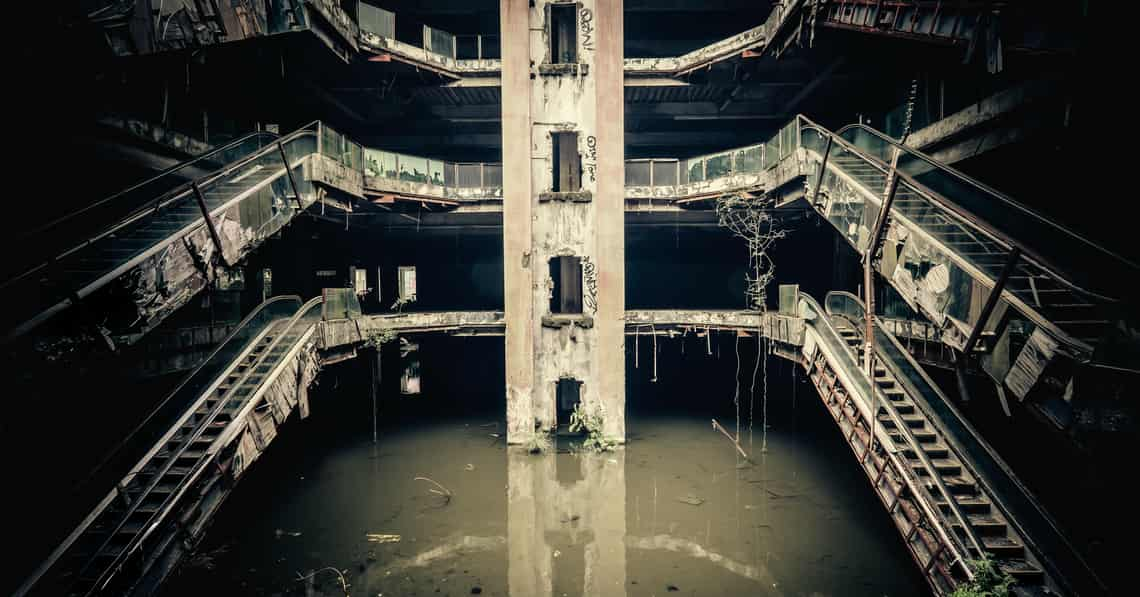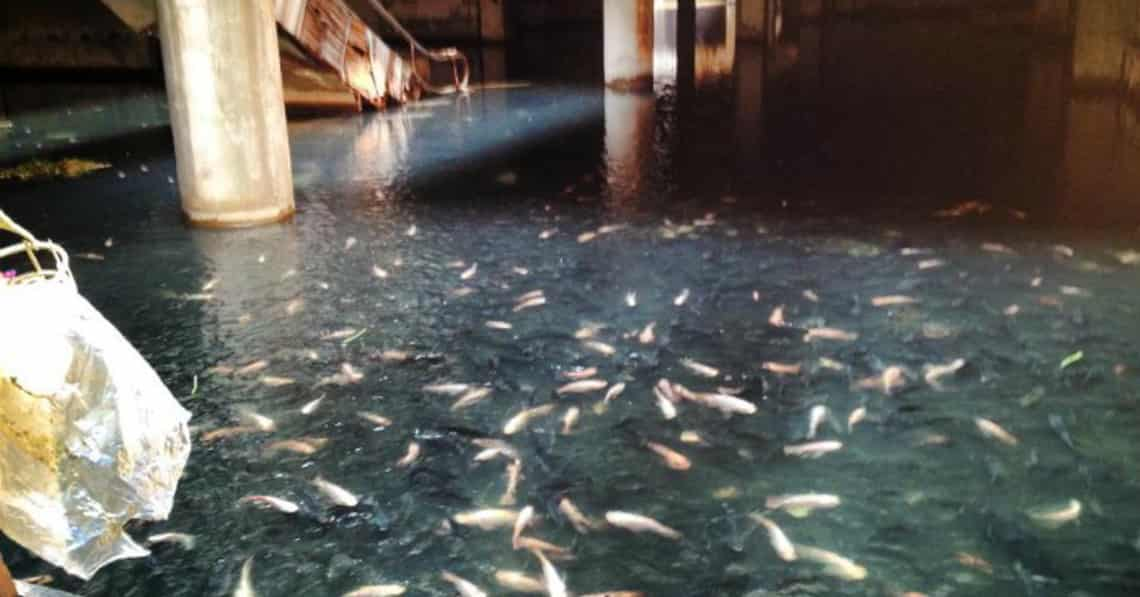The Bang Lamphu shopping mall in Bangkok was built in 1982 and has been through a tumultuous journey before finally being abandoned and then declared derelict and off-limits to the public just recently. It has long been a source of interest for curious photographers and members of the public who have seen pictures of the mall’s 5000-square-foot fish pond online.
The mall, also known as New World Mall, was a successful shopping centre popular with locals until it was closed down in 1997. The Bangkok Metropolitan Administration (BMA) had ordered the demolition of a seven-storey extension on the 11-storey mall. Apparently, store operators had originally asked the BMA for permission to build an extra four storeys on the mall, and went ahead with seven instead.
New World Mall saw even more bad luck when its roof was destroyed by a fire in 1999. Once the seven-storey section was finally demolished in 2004, the remaining four-storeys were left exposed and abandoned, with no roofing or covering. This caused rainwater to flood the ground floor, and eventually people who lived near the abandoned building began to complain of an increased number of mosquitoes in the area. They believed that the mosquitoes had found their ideal breeding ground in the mall’s large stagnant pond.
In an effort to mediate the problem, locals released fish into the water, and years later, the pond has become a tourist attraction for people wishing to see and feed the thousands of thriving fish that now call the mall their home. The fish are mostly freshwater tilapia, and vendors sell food for visitors to offer the fish, but throwing anything else in the water is strictly forbidden.
For the past few years, the pond has only seen around 10 to 20 visitors per day, but now that there has been increased media attention and photos of the fish circulating online, more and more people have been trying to see the pond for themselves.
This has led the BMA to reassess the mall and declare it off-limits to the public for safety reasons. The BMA’s Public Works Department plan to inspect the building and report their findings within a month, and if the building is found to be unsafe, it will be totally destroyed, once and for all, and the fish will have to find a new home somewhere else.
Although city officials have expressed fears that the pond may be infectious or fetid, locals insist that the pond is free of disease. They say that the proof is in the fish themselves, who have flourished in the pond for many years. People who are opposed to the demolition of the New World Fish Pond say it will bring to an end a place which has provided nourishing life to these fish, and awe and happiness to its visitors.



